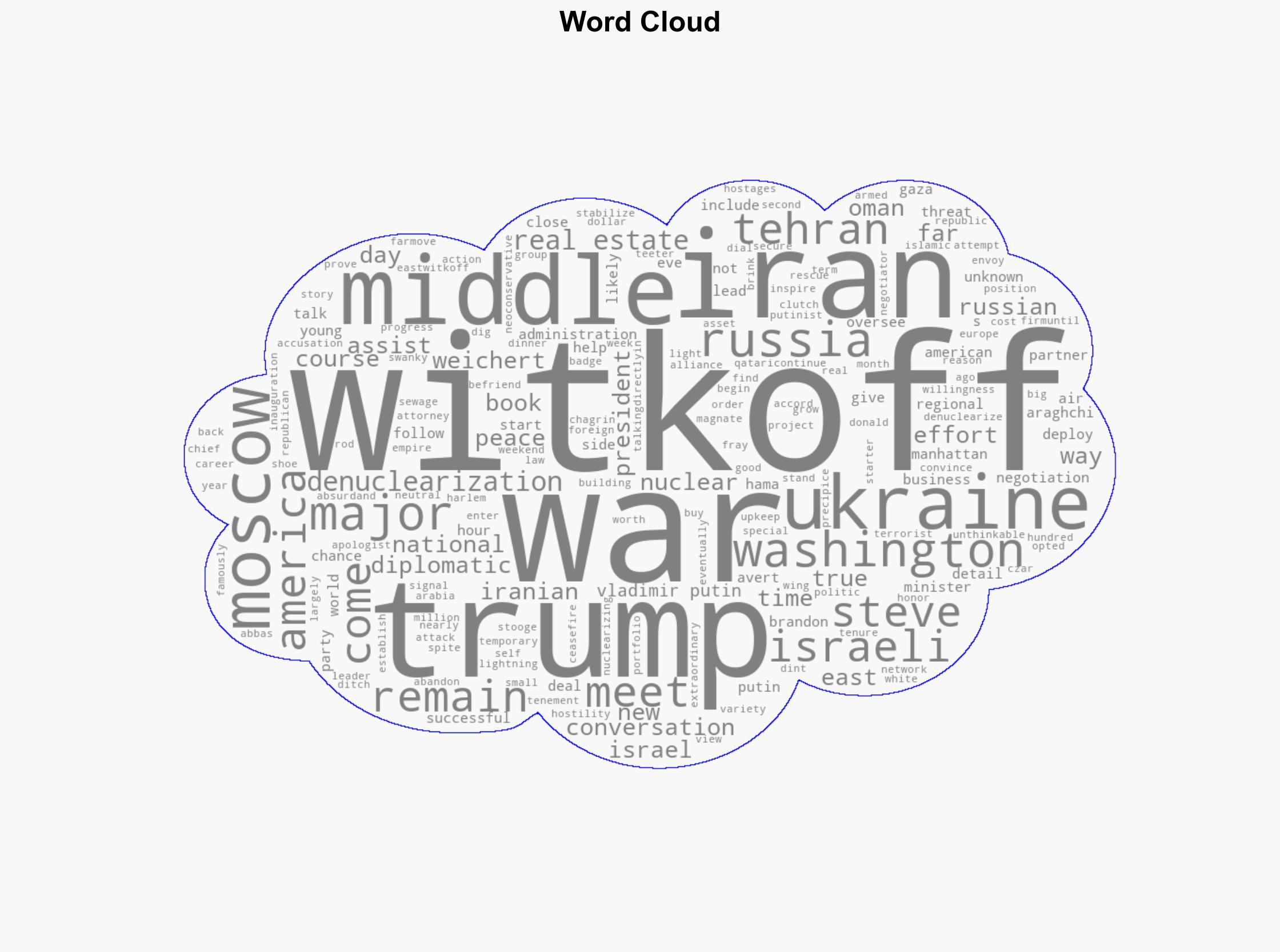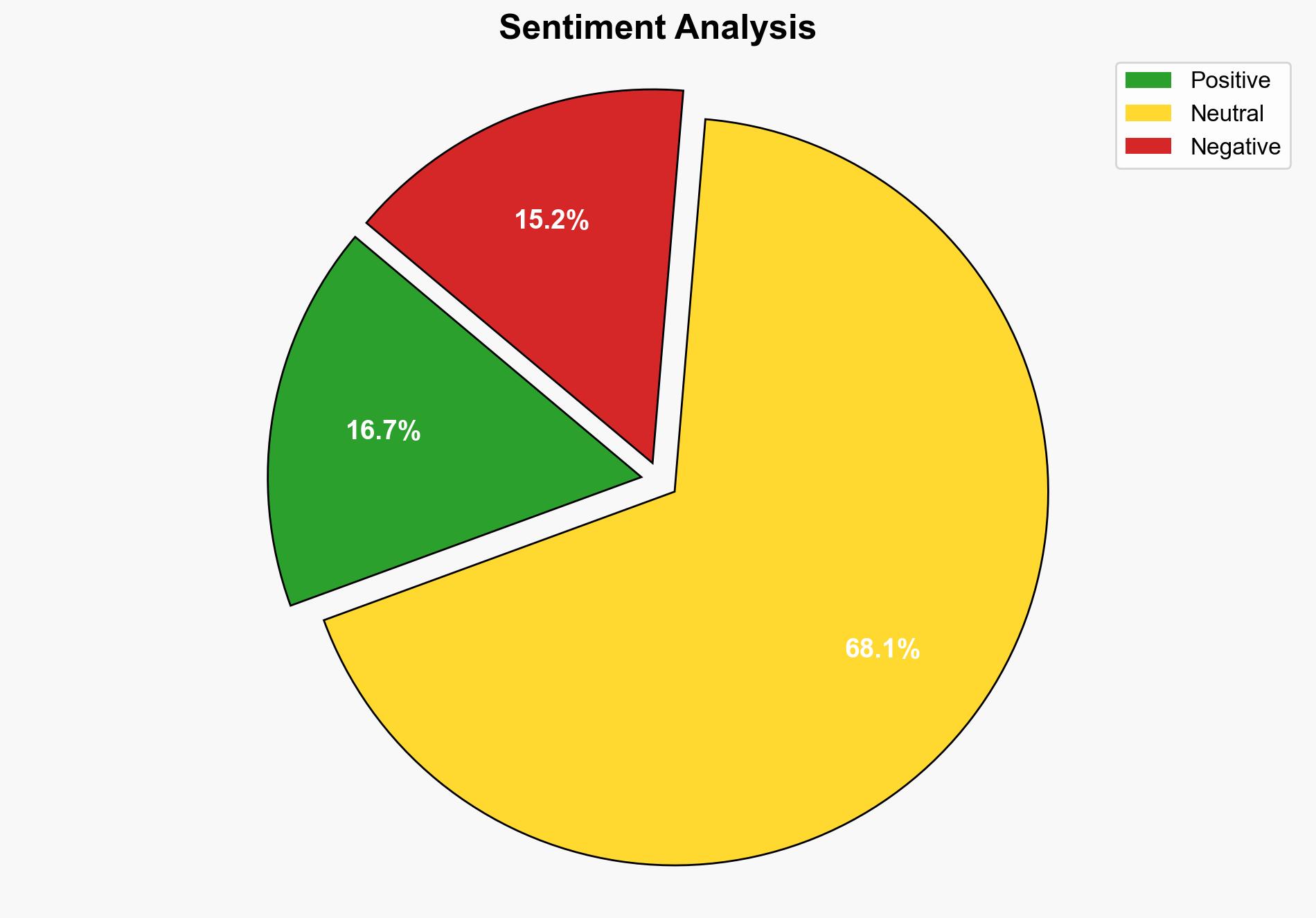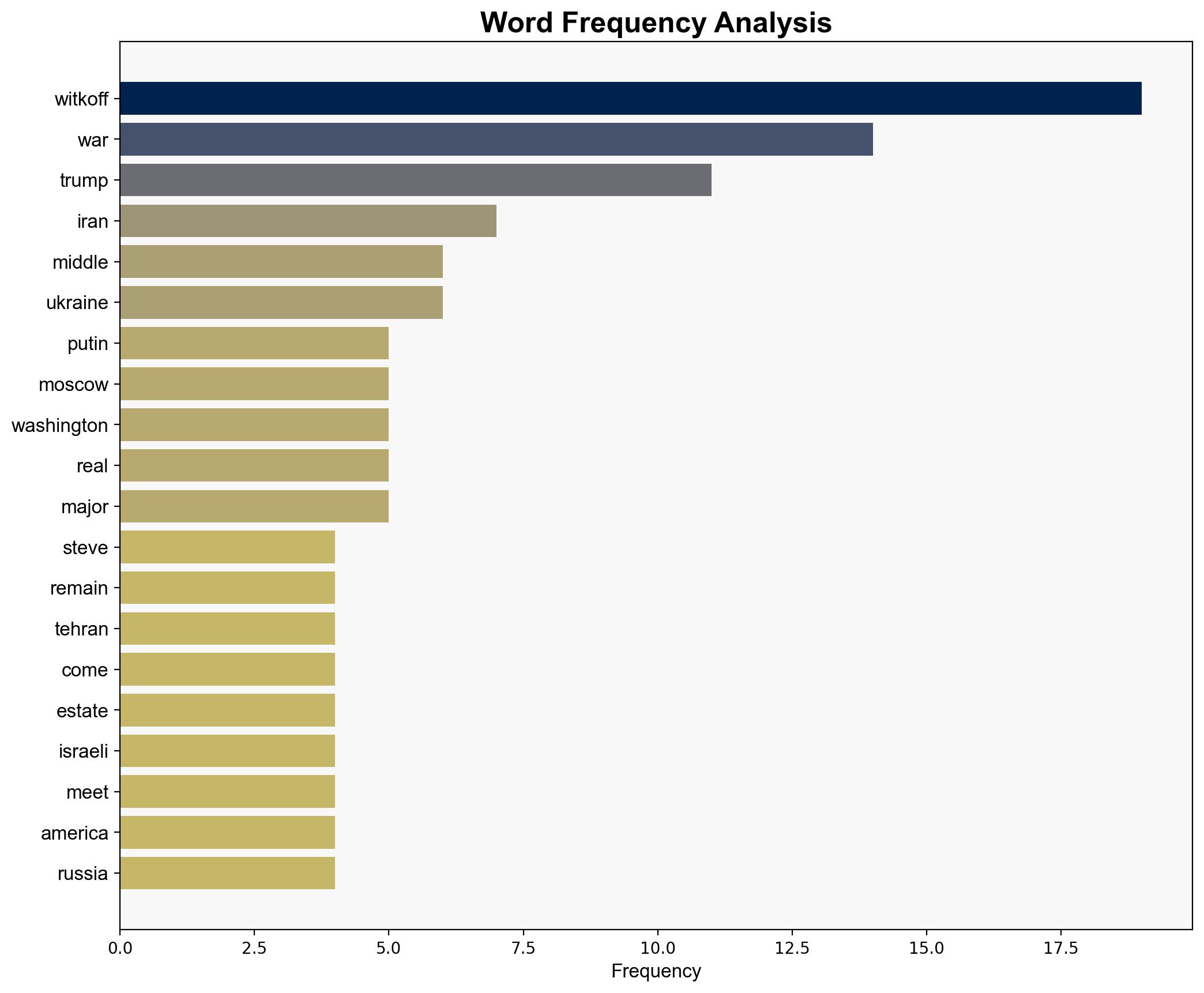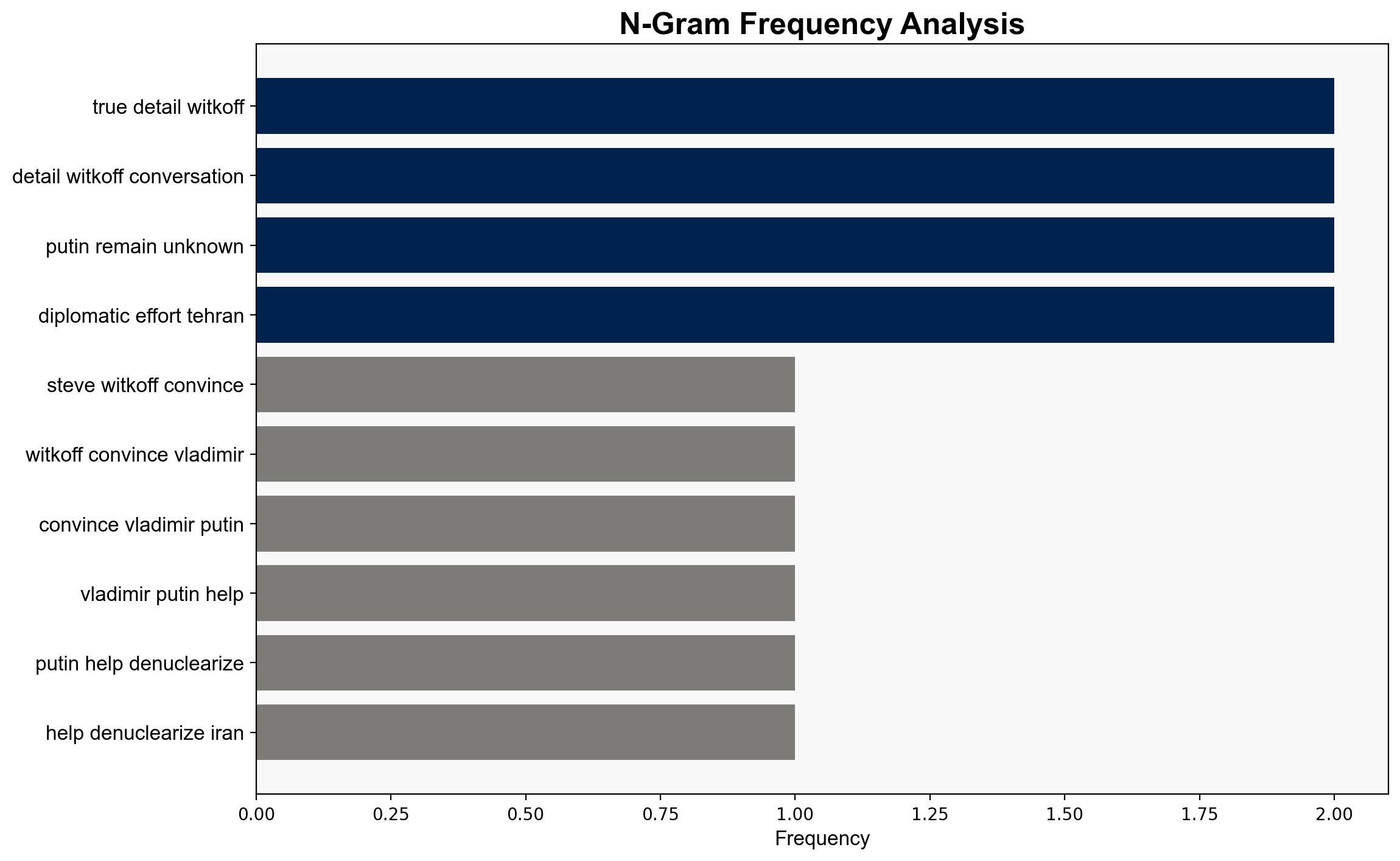Can Steve Witkoff Convince Vladimir Putin to Help Denuclearize Iran – The National Interest
Published on: 2025-04-15
Intelligence Report: Can Steve Witkoff Convince Vladimir Putin to Help Denuclearize Iran – The National Interest
1. BLUF (Bottom Line Up Front)
Steve Witkoff’s recent engagement with Vladimir Putin may signal a potential shift in Moscow’s stance towards assisting in the denuclearization of Iran. This development could significantly impact U.S. diplomatic efforts in the Middle East. However, the details of their conversation remain undisclosed, leaving uncertainties about the extent of Russia’s willingness to collaborate. Immediate strategic actions should focus on leveraging this potential diplomatic opening while preparing for various contingencies.
2. Detailed Analysis
The following structured analytic techniques have been applied for this analysis:
General Analysis
Steve Witkoff’s role as a negotiator has placed him at the center of significant geopolitical issues, including the Ukraine conflict and Middle Eastern tensions. His recent meeting with Vladimir Putin could indicate a strategic pivot by Russia towards cooperation with the U.S. on Iran. This potential collaboration comes amidst heightened tensions between the U.S.-Israeli alliance and Iran. Witkoff’s history of successful negotiations, such as the temporary ceasefire with Hamas, suggests he may be capable of facilitating a similar outcome with Iran.
3. Implications and Strategic Risks
The potential for U.S.-Russia collaboration on Iran presents both opportunities and risks. Successful denuclearization efforts could stabilize the Middle East, reducing the threat of military conflict. However, failure to secure Russian cooperation could exacerbate regional tensions and undermine U.S. diplomatic credibility. Additionally, Witkoff’s involvement may attract criticism from various political factions, potentially complicating negotiations.
4. Recommendations and Outlook
Recommendations:
- Engage in direct diplomatic dialogues with Moscow to clarify Russia’s position and intentions regarding Iran.
- Develop contingency plans to address potential fallout from unsuccessful negotiations.
- Enhance intelligence gathering to monitor shifts in regional alliances and military activities.
Outlook:
Best-case scenario: Successful U.S.-Russia collaboration leads to Iran’s denuclearization, stabilizing the region and strengthening international diplomatic ties.
Worst-case scenario: Breakdown in negotiations results in increased hostilities, potentially leading to military conflict involving the U.S.-Israeli alliance and Iran.
Most likely scenario: Incremental progress in negotiations with continued diplomatic efforts required to achieve a comprehensive agreement.
5. Key Individuals and Entities
The report mentions significant individuals such as Steve Witkoff and Vladimir Putin. Their interactions could play a crucial role in shaping the geopolitical landscape concerning Iran’s nuclear ambitions.




